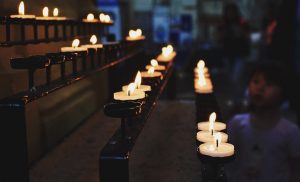
Religious and political factors make Russian Orthodoxy attractive for some people in the Appalachian region of the U.S., according to a recent study. Former evangelical Christians who convert to Russian Orthodoxy may not only find an answer to their religious longing, but also “a politically conservative ideological haven,” writes anthropologist Sarah Riccardi-Swartz (New York University), whose PhD field research focuses on communities of converts to the Russian Orthodox Church Outside Russia (ROCOR) in the Appalachian Mountains. In a response to “The Culture Wars Today” series on the Berkley Forum (Dec. 18, 2019), Riccardi-Swartz reports that converts tend to see Russian leader Vladimir Putin “as a god-inspired leader,” fighting for moral values, who could help to make America “holy again.” Perceiving the United States as morally bankrupt, they feel that Russian Orthodoxy might show the path to salvation from secularism and from ongoing moral decline. As Riccardi-Swartz remarks, the concerns expressed by the Appalachian ROCOR converts are not new. What makes them less usual is that their search for traditional values makes them look for a model in a foreign country, long seen as hostile– even making them think how they would position themselves in case of a future war between the United States and Russia. At the same time inheriting previous conservative views and looking for ideological resources outside of the United States, they become involved in the global circulations of conservatism on the rise in different parts of the world.
(The Culture Wars Today, Berkely Forum)
